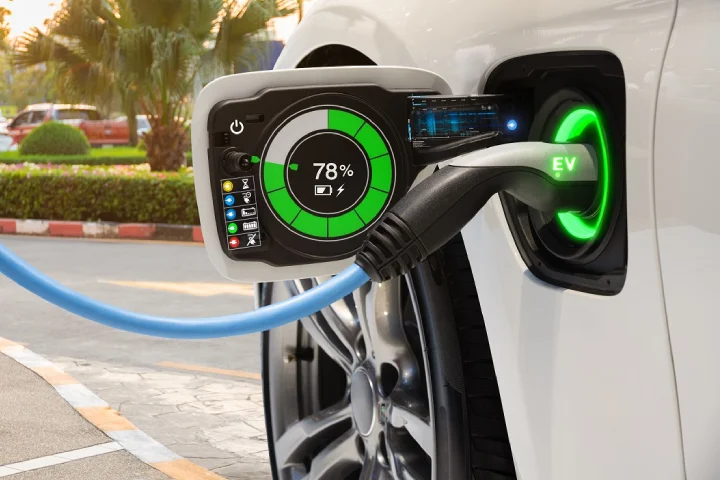

Representative Image
Hyundai Motor Company (Hyundai Motor) and Kia Corporation (Kia) signed a Memorandum of Understanding (MoU) for strategic cooperation with Exide Energy Solutions Ltd (Exide Energy), a leading Indian battery company, as part of their electric vehicle (EV) expansion plans.
The signing ceremony took place at Hyundai Motor Group’s Namyang Research and Development Center in South Korea.
With the expansion of their EV plans for the Indian market, Hyundai Motor and Kia aim to localize their EV battery production, specifically focusing on lithium-iron-phosphate (LFP) cells.
As per a release, this strategic move will position them as the pioneers in applying domestically produced batteries in their upcoming EV models in the Indian market.
“India is a key market for vehicle electrification due in part to the government’s carbon neutrality goals, which makes securing cost competitiveness through localized battery production crucial,” said Heui Won Yang, President and Head of Hyundai Motor and Kia’s R&D Division.
“Through this global partnership with Exide Energy Solutions Ltd., we will gain a competitive advantage by equipping Hyundai Motor and Kia’s future EV models in the Indian market with locally produced batteries.”
Kolkata-based Exide Industries Ltd, a leading lead-acid battery supplier in India has over 75 years of experience and market leadership in lead-acid batteries.
Exide Energy Solutions Ltd is a wholly owned subsidiary company of Exide Industries Ltd, which was established in 2022 to foray into the business of manufacturing Lithium-Ion cells, modules and packs incorporating a portfolio of multiple chemistries and form factors.
This strategic cooperation with Exide Energy marks the beginning of Hyundai Motor and Kia’s efforts to expand its exclusive battery development, production, supply and partnerships in the Indian market.
India is recognized as a highly promising automotive market worldwide and the country is rapidly emerging as a critical player in the production and sales of EVs.
Realizing the strategic importance of the Indian market, Hyundai Motor and Kia are taking the lead in the Indian market by introducing their EV models to establish themselves as the frontrunners in the Indian automotive industry.
As per data released by the auto dealers association on Monday, for the entire 2023-24, retail auto sales in India achieved a notable 10 per cent year-on-year growth, with the 2W, 3W, passenger vehicle, tractor and commercial vehicle segments registering growth rates of 9 per cent, 49 per cent, 8.45 per cent, 8 per cent and 5 per cent respectively, setting record highs in the 3W, passenger vehicle and tractor categories.
India decisively asserted its military superiority over Pakistan during this month's brief but intense conflict,…
Trade associations and local business groups in Pakistan-occupied Gilgit-Baltistan (PoGB) launched an indefinite protest on…
A human chain and protest march was organized by various organizations in front of the…
The United States on Saturday announced the expansion of its security partnerships with India through…
Highlighting the use of indigenous platforms during Operation Sindoor, Chief of Defence Staff (CDS) General…
Congress MP Shashi Tharoor on Friday (local time) said that Colombia will issue a statement…